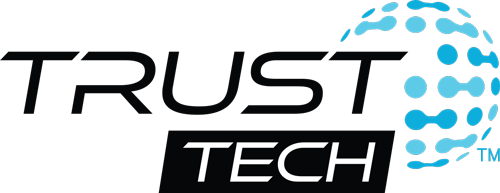Introduction:
In today’s digital age, IT infrastructure plays a pivotal role in the success of any business. However, managing IT services in-house can be a daunting task, especially for small and medium-sized businesses (SMBs). This is where outsourced IT providers come into the picture. They offer a cost-effective solution to manage your IT needs, allowing you to focus on your core business. But how do you choose the right outsourced IT provider? Here are some key factors to consider.
- Understanding Your Business Needs:
- Before you start your search, it’s crucial to understand your specific IT needs. Do you need help with network management, cybersecurity, data backup, or cloud services? Or perhaps you need a comprehensive package that covers all these aspects. Identifying your needs will help you narrow down your choices and find a provider that specializes in those areas.
- Experience and Expertise:
- Look for a provider with a proven track record in your industry. They should have the necessary experience and expertise to handle the unique challenges your business might face. Ask for case studies, client testimonials, or references to gauge their competency.
- Scalability:
- As your business grows, your IT needs will also evolve. The right IT provider should be able to scale their services according to your growth. They should offer flexible packages that can be upgraded or downgraded as per your requirements.
- Security and Compliance:
- With the rise in cyber threats, it’s essential to choose a provider that prioritizes security. They should follow best practices to protect your data and ensure compliance with relevant regulations.
- Transparent Pricing:
- The cost of outsourced IT services can vary widely. Make sure you understand what’s included in the price and if there are any additional charges. A good provider will offer transparent pricing without any hidden costs.
- Cultural Fit:
- Finally, consider the cultural fit. The right provider should align with your company’s values and work style. They should be easy to communicate with and show a genuine interest in helping your business succeed.
Conclusion:
Choosing the right outsourced IT provider is a strategic decision that can significantly impact your business’s efficiency and growth. By considering the factors mentioned above, you can find a reliable partner that meets your IT needs and helps you navigate the digital landscape with confidence.
Remember, the goal is not just to find an IT provider, but to build a long-term partnership that supports your business’s evolving needs. So, take your time, do your research, and make an informed decision.
CHECKLIST for new companies
- Identify Your IT Needs:
- What specific IT services does your business require?
- Do you need network management, cybersecurity, data backup, cloud services, or a combination of these?
- Are there any industry-specific IT requirements for your business?
- Experience and Expertise:
- Does the provider have experience working with new businesses or businesses in your industry?
- Can they provide case studies or testimonials from similar businesses they’ve worked with?
- Do they have the necessary certifications and qualifications?
- Scalability:
- Can the provider scale their services as your business grows?
- Do they offer flexible packages that can be adjusted as per your needs?
- Security and Compliance:
- Does the provider follow best practices for IT security?
- Can they help your business comply with relevant IT regulations?
- Do they offer regular security audits and updates?
- Transparent Pricing:
- Does the provider offer clear, upfront pricing?
- Are there any hidden costs or additional charges you should be aware of?
- Does the pricing structure fit within your budget?
- Cultural Fit:
- Does the provider’s work style align with your business culture?
- Are they easy to communicate with?
- Do they show a genuine interest in helping your business succeed?
- Contract Terms:
- What are the terms of the contract?
- Is there a minimum contract period?
- What is the process for terminating the contract if necessary?
- Data Ownership:
- Who owns the data stored or processed by the provider?
- What happens to your data if you decide to switch providers?
- Disaster Recovery:
- Does the provider have a disaster recovery plan in place?
- How often do they backup data?
- What is their plan for getting your business back up and running in the event of a major IT issue?
Remember, choosing an IT provider is a significant decision for any new business. Take your time, do your research, and don’t hesitate to ask potential providers any questions you might have. The right IT provider will not only meet your current needs but will also be a valuable partner as your business grows and evolves.

